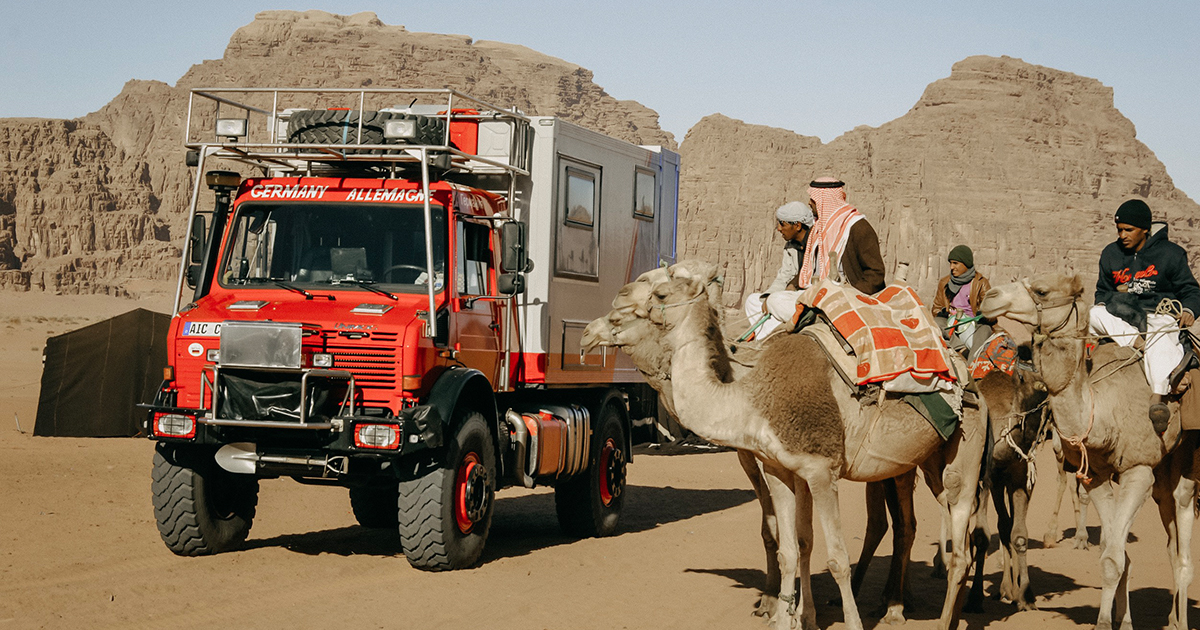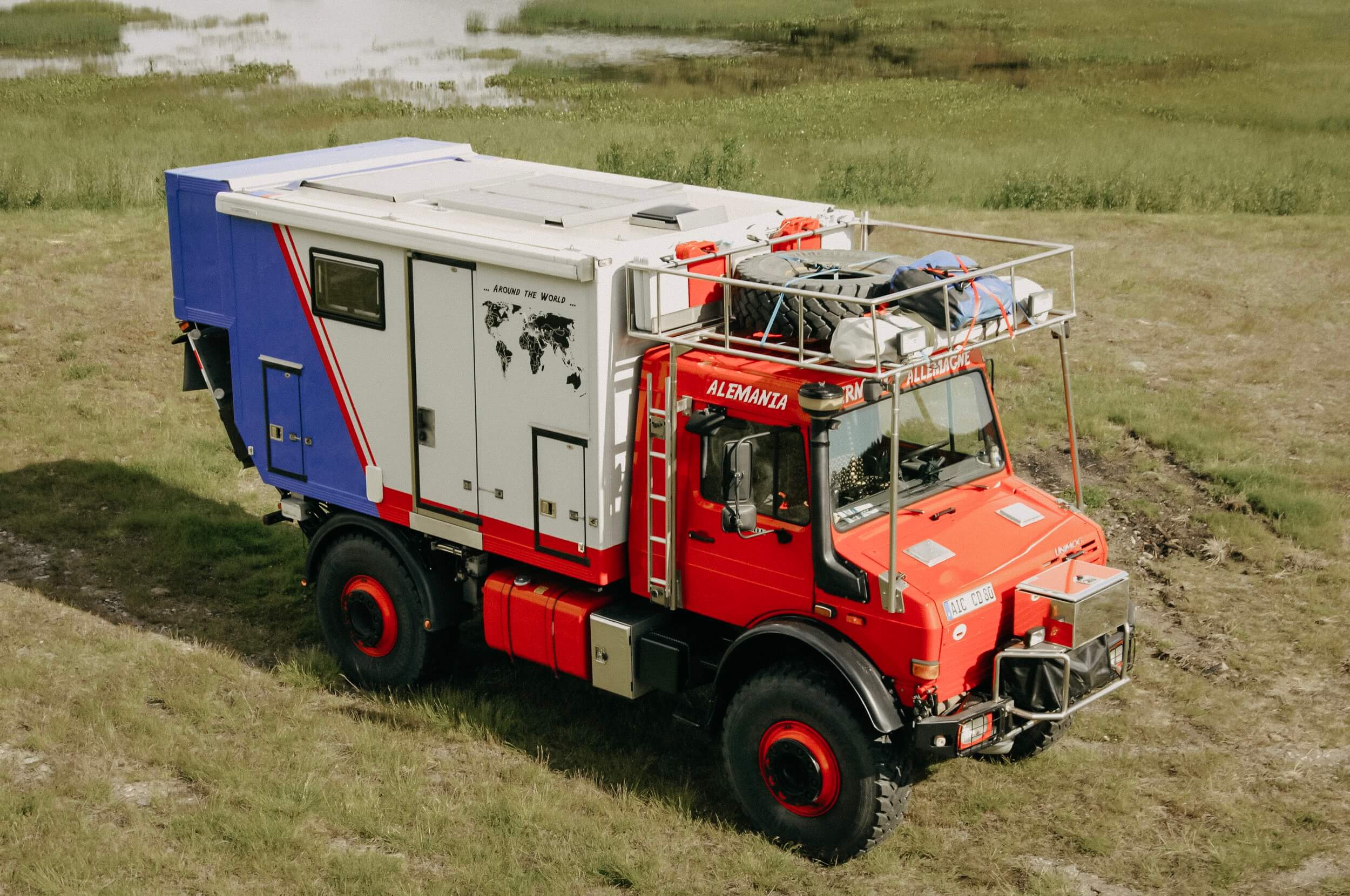A Very Personal Declaration of Independence

Sonja Nertinger and Klaus Schier actually live in Merching, Bavaria, Germany — but you will not see them there very often, because the pair have been traveling for over 25 years. In their converted camper van, the couple — who are travel journalists and filmmakers — have journeyed together to Iceland and Greenland, ventured as far as Patagonia and explored new areas in the African terrain of Zambia. On their travels, they have also learnt how to ensure that the power never goes out — even in the heart of the jungle. We spoke to Klaus Schier about his adventures when we caught up with him back in Germany.
Iceland, Tierra del Fuego, Africa — your travel destinations sound more like expeditions. How many people do you have in your team?
Klaus Schier: We always go on the trips with just the two of us; we never have an escort vehicle with us. We organize everything ourselves, from researching and planning the trips through to the actual traveling. We had already been to Central America and North Africa, and in 2000 we decided to do a round-the-world trip. We planned to be away for three or four years, but it has now been 19 years. However, we’re always coming back to Germany to produce films and prepare for our next trips.
You often find yourselves hundreds of kilometers away from the nearest electrical outlet. Don’t you ever lose power when you’re on the road?
KS: We are always completely self-sufficient. The vehicles we use we largely convert ourselves, and the vehicles we took to Alaska or Tierra del Fuego had three roof-mounted solar panels to supply us with power. We also have plenty of energy storage space in the form of large batteries.
Are the batteries connected to the vehicle batteries?
KS: No, they’re independent. We use the vehicle batteries just to start and drive the vehicle and for the radio. The battery supply for the living area is completely separate. We have solar panels up on the roof of the vehicle and batteries with ample capacity in the body of the vehicle. They are charged via the solar panels or via a second generator.
So you’re always flexible with your options when you’re on the road, come what may?
KS: Exactly — even if something breaks. Nowadays, you can get solar panels anywhere in the world, in all manner of sizes and qualities as well as batteries and inverters. Inverters are needed to convert 12 volts to 110 or 220 volts.

25 Years on the road
25 years on the road. What has changed in terms of power supply since that time?
KS: In the beginning, it was very unusual to see a car with solar panels; but now it’s commonplace.
What tip would you give to our readers who would like to install solar panels on their roofs?
KS: Always remember not to fix the solar panels permanently into place because then you can easily take them down and reposition them to catch the sun’s rays. It often happens that you’re traveling — in Africa, for example, — and you want to find a spot of shade. But that means you’re out of the sun, and your power supply is disconnected. What I do is use a long cable to place a solar panel away from my shady parking spot so that I can still harvest energy.
But the sun isn’t always shining. Then what?
KS: You need to work backward. You need to know how much energy your devices consume and how much energy you need on a daily basis for things like the water pump and the radio, your computer and your lights. I prefer to overcalculate a little and use these figures to work out the size of the batteries and the solar panels I need. There’s no point having a large solar panel on the roof connected to a very small battery that doesn’t have enough capacity to store the generated power. Having three or four batteries of the right sizes gives me plenty of power that will last even if there’s not much sun for a few days.
Not everyone is constantly traveling. What advice would you give to people who want to set up an power supply in their sheds in their allotment gardens or in their cabins in Sweden, which are not connected to the grid?
KS: You would always use the same system: a solar panel, solar converter, battery and an inverter. I transfer the same basic concept to any application, whether it’s our house in Sweden or the Mercedes Sprinter in Bavaria.
Will we ever gain our independence from large utility companies?
KS: We will always be dependent on power, and this need will become progressively greater. The only question is where we get our power supply from. Do we simply procure it from the power utilities, or do we contribute to our own supply by installing solar panels on the roof?
Will we ever be able to live without power?
KS: No, nothing functions without power in the modern world. The question is simply how we generate the power we need.
Thank you very much for talking to us.

